Indian cuisine is one of the most important ones to master when learning to make vegan food. It’s incredibly flexible and once you have the fundamentals down you can adjust the recipes to your liking. This butternut squash curry has a rich creamy texture, a mild spice, and is packed with health benefits. I will cover the basics of making it all from scratch and building flavour in layers.
Ingredient notes
Butternut squash – Butternut squash is a really healthy type of winter squash. Containing lots of vitamin A, vitamin C, potassium, with a good level fibre [1]. It’s also delicious however it’s cooked, but especially when you roast it like in this recipe, as all its natural sweetness comes out!
Chickpeas – Chickpeas, or garbanzo beans, as they’re known in the states. Are a legume that is rich in protein and complex carbohydrates. They have also been shown to help lower blood pressure and cholesterol [2]
Cashews – These are a vegan staple. I use them in all sorts of recipes but they always go well in a curry and add a nice bite. They also contain lots of protein, are high in unsaturated fats and are packed full of antioxidants [3].
Fenugreek leaves – Also known as kasuri methi adds a beautiful nutty bitterness that helps to balance the dish really well. If you don’t have it and don’t want to buy it just for this dish, then you can leave it out. However, it’s really worth picking up if you are going to make a lot of curries!
How to make this butternut squash curry
1) The first thing is first, prepare your squash. There is no need to peel it. Just give it a bit of a scrub to remove any dirt. Cut the squash into 2 cm cubes, coat with neutral oil and cumin seeds, and bake at 180 degrees for 20 to 30 minutes until tender, cooked through but not too soft. Once cooked, set aside.
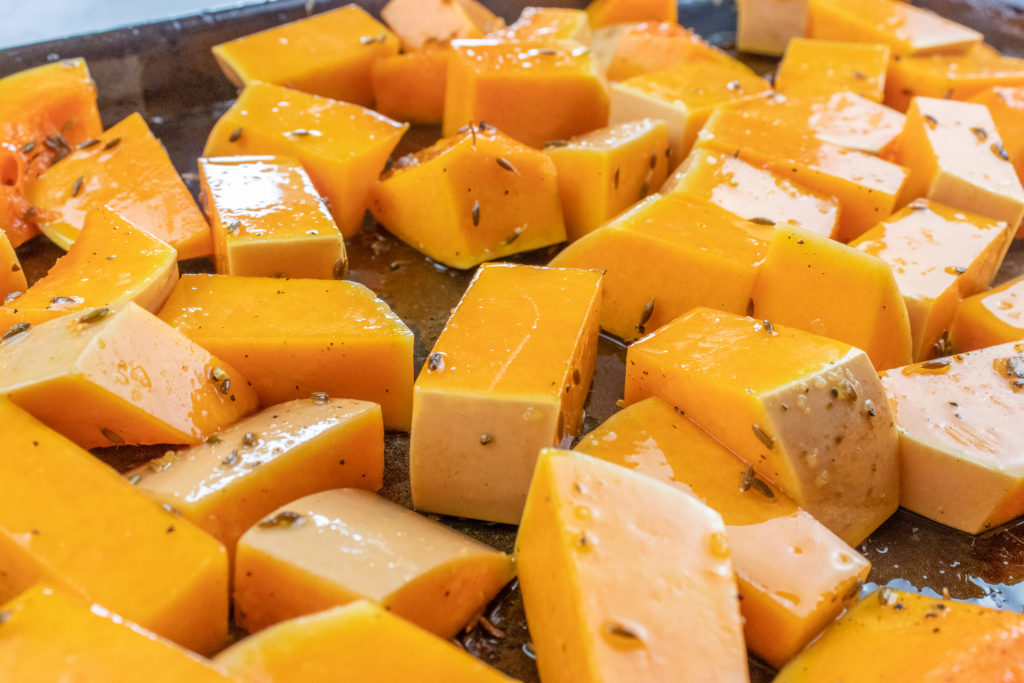
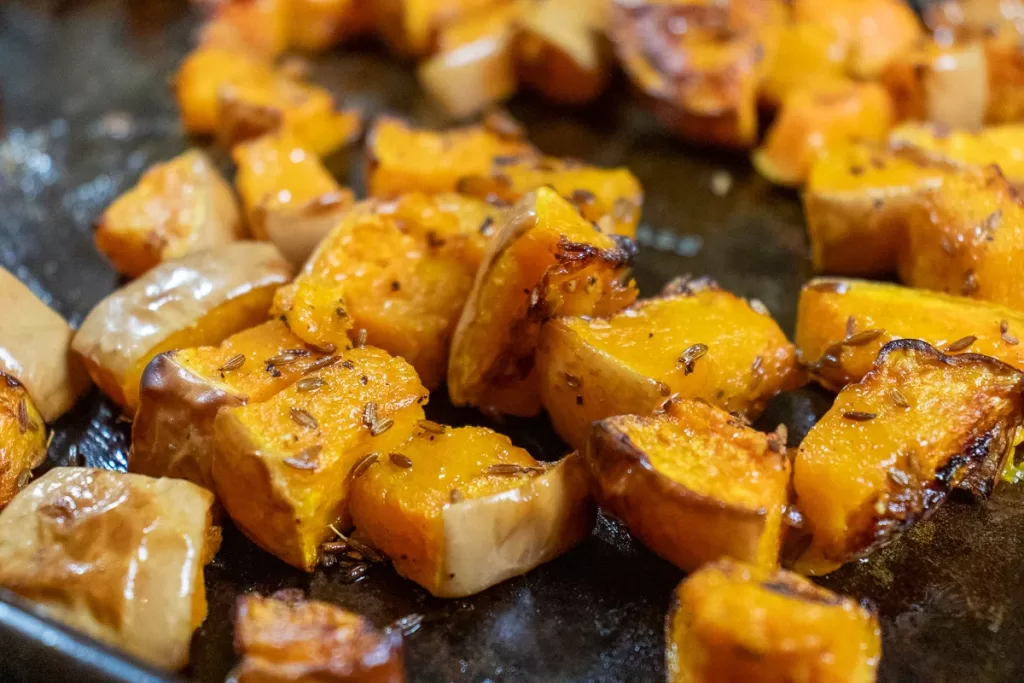
2) While squash is roasting, prepare the vegetables. Everything will come together quickly afterwards. Roughly chop your onions and tomatoes. Pound the ginger and garlic ina pestle and mortar.
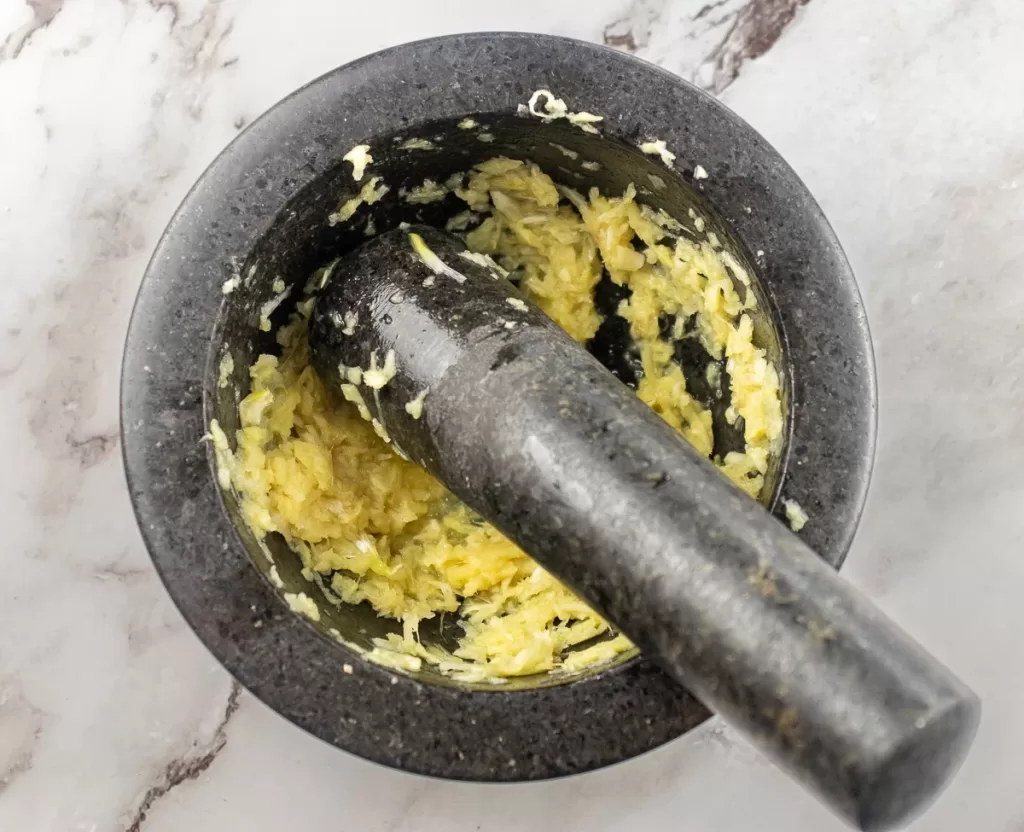
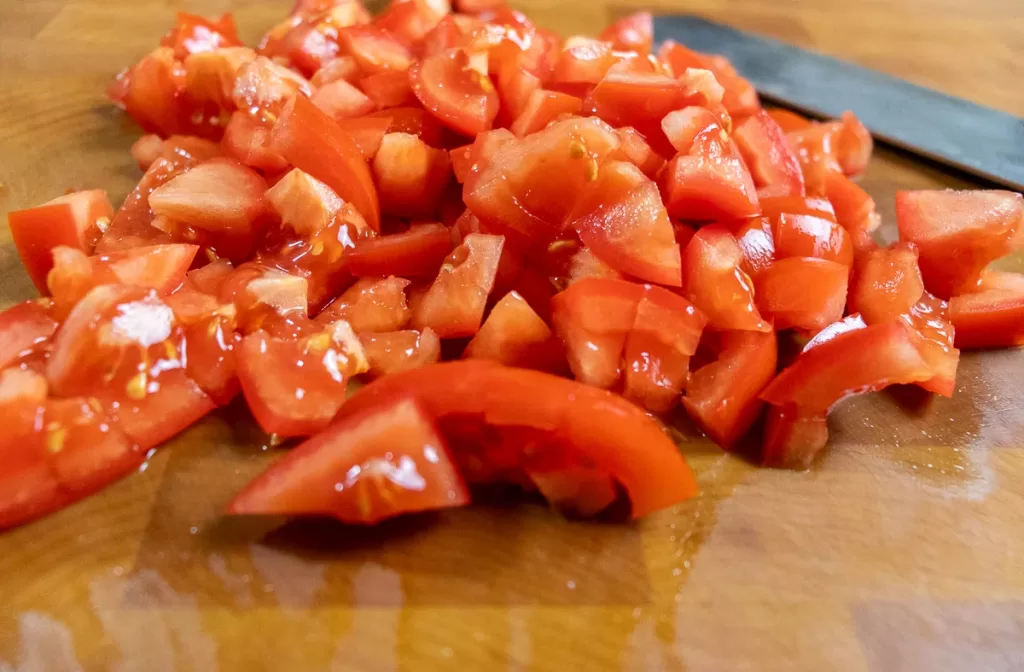
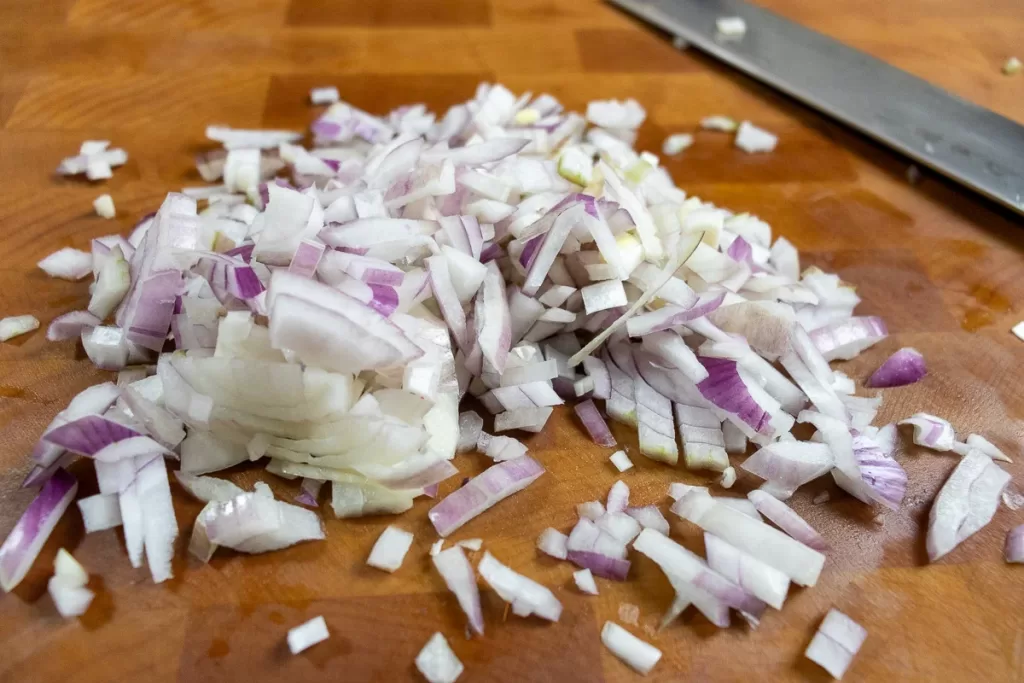
3) Get your wok or large pan on a medium heat with a couple of tablespoons of a neutral oil and add the mustard and cumin seeds. Fry until the mustard seeds start to pop and jump around.
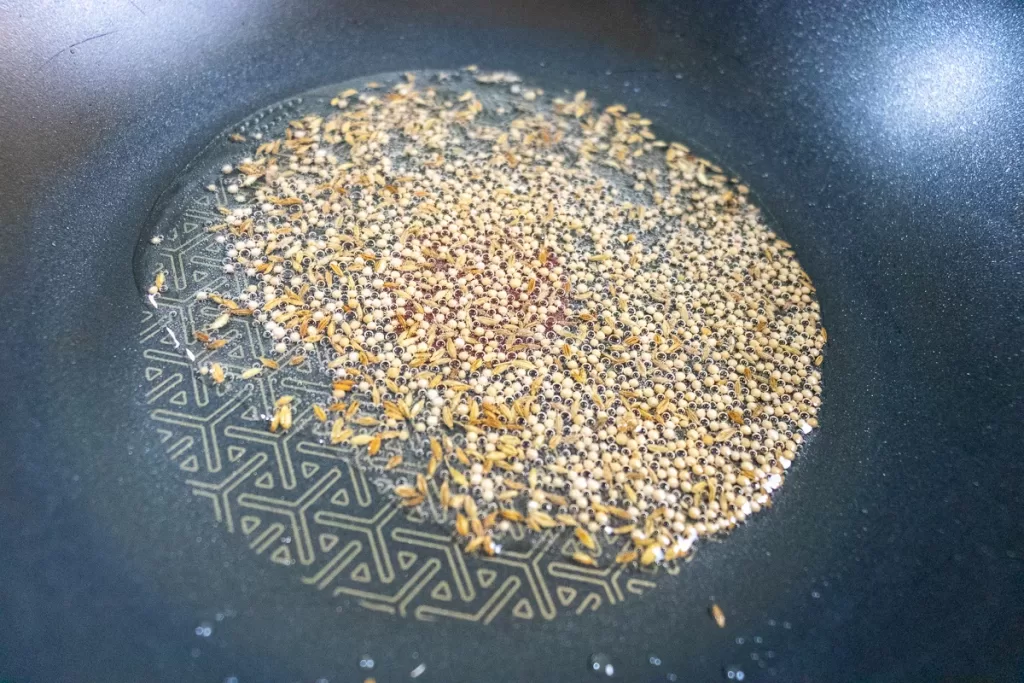
4) Then add the garlic and ginger paste and fry for a minute or so. Not long at all, just until it’s fragrant. It’s crucial to not let this burn!
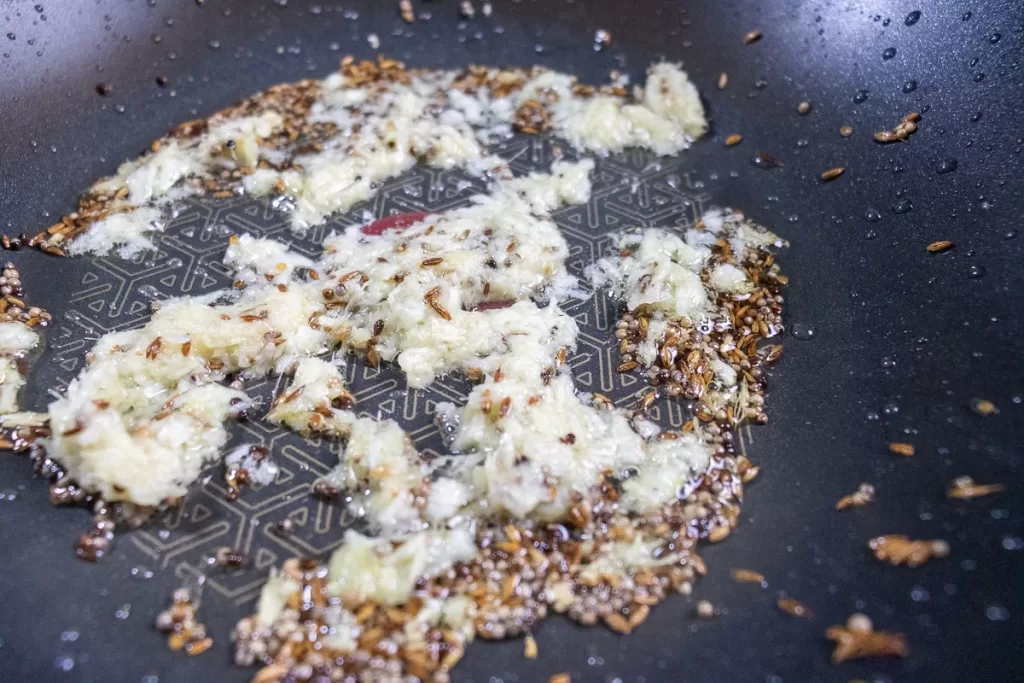
5) Once it’s fragrant and before any colour has developed, add the chopped onion and a pinch of salt. The moisture released here will help to stop the aromatics from burning.
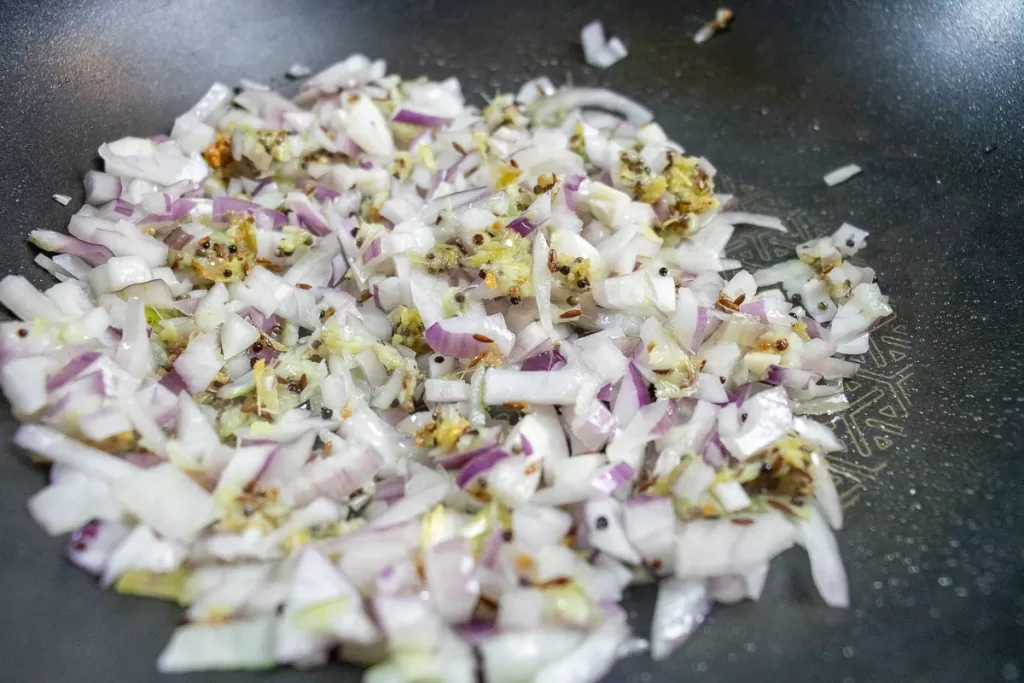
6) When the onion is soft and translucent, add the curry powder to the pan. If it’s looking a bit too dry, add a little more oil. This is a crucial step as blooming the spices in oil will awaken the flavours and allow them to impart into the rest of the dish.
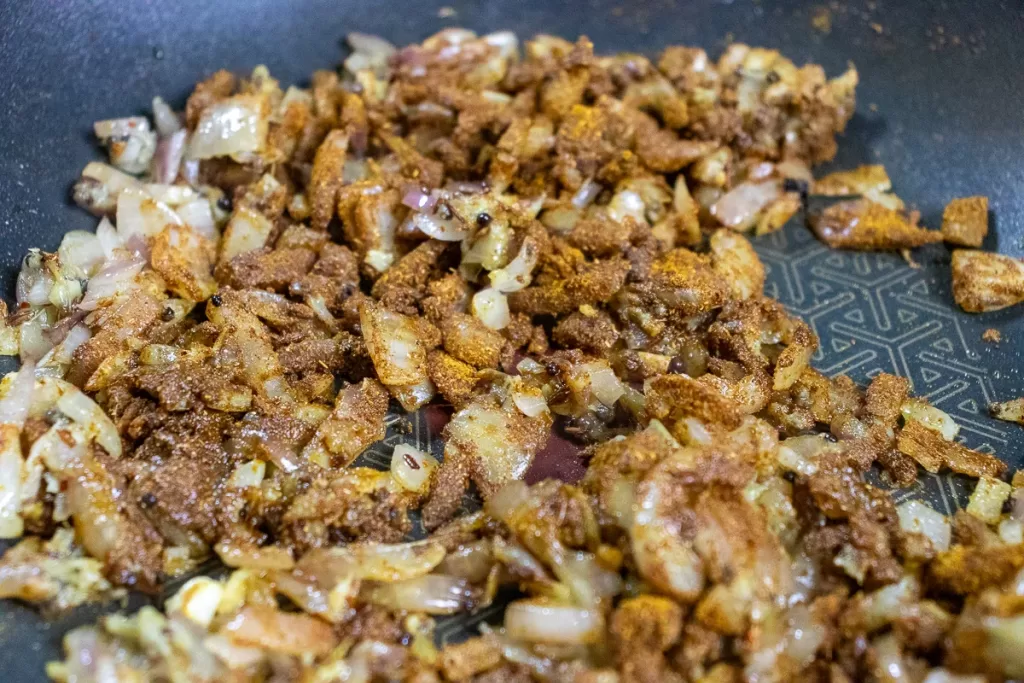
7) Add the tomato puree, mix in and cook for a minute. This will add an extra layer of umami depth to the dish. It’s important to cook it for a minute to help bring out those favours.
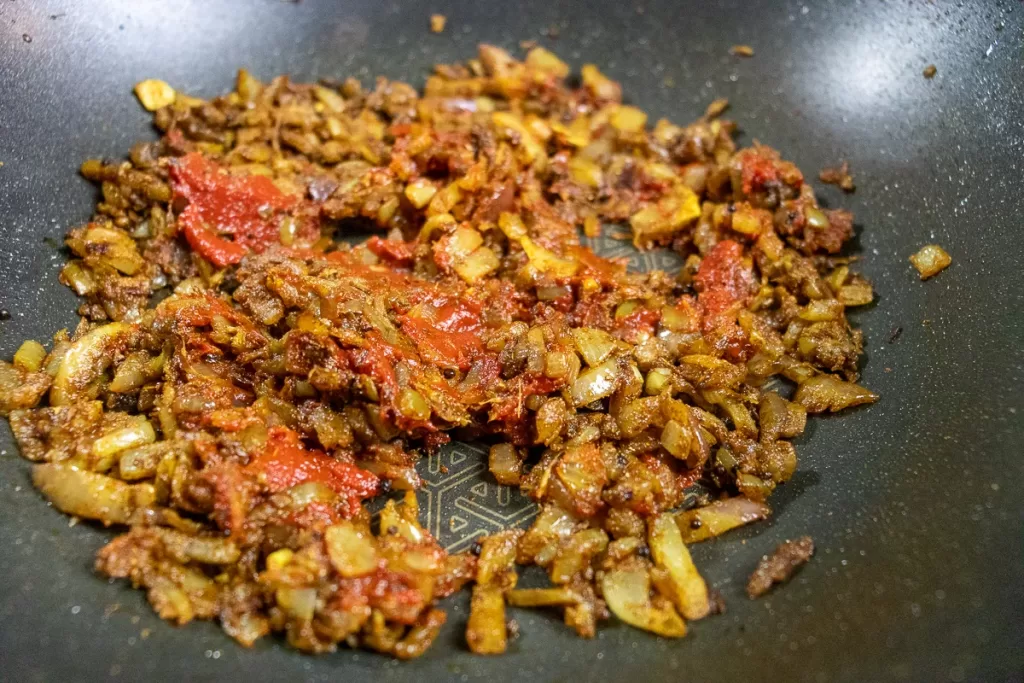
8) Once bloomed and fragrant, add the tomato. Mix well and let it simmer on medium-low heat until you have a homogeneous masala. As the pectin in released from the tomato, it will thicken. You can add more water though if it gets too dry!
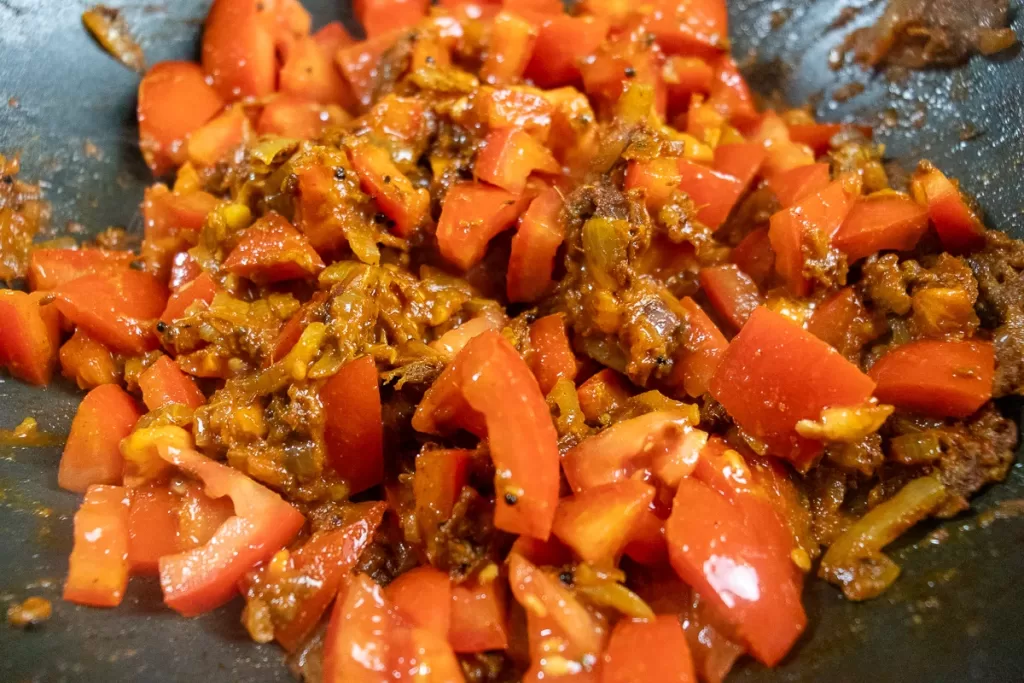
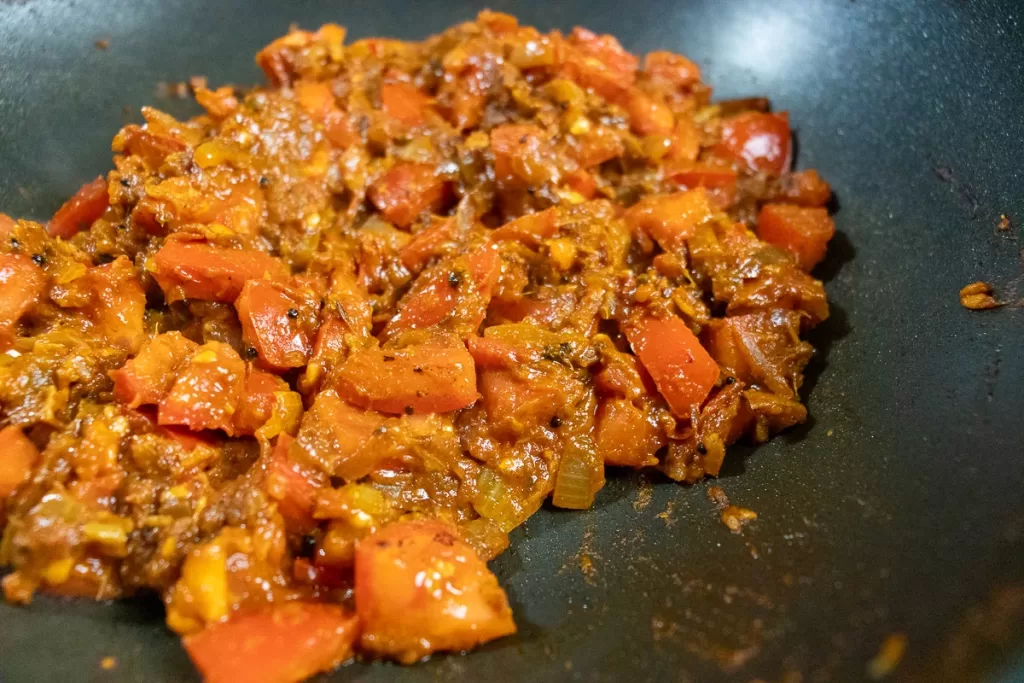
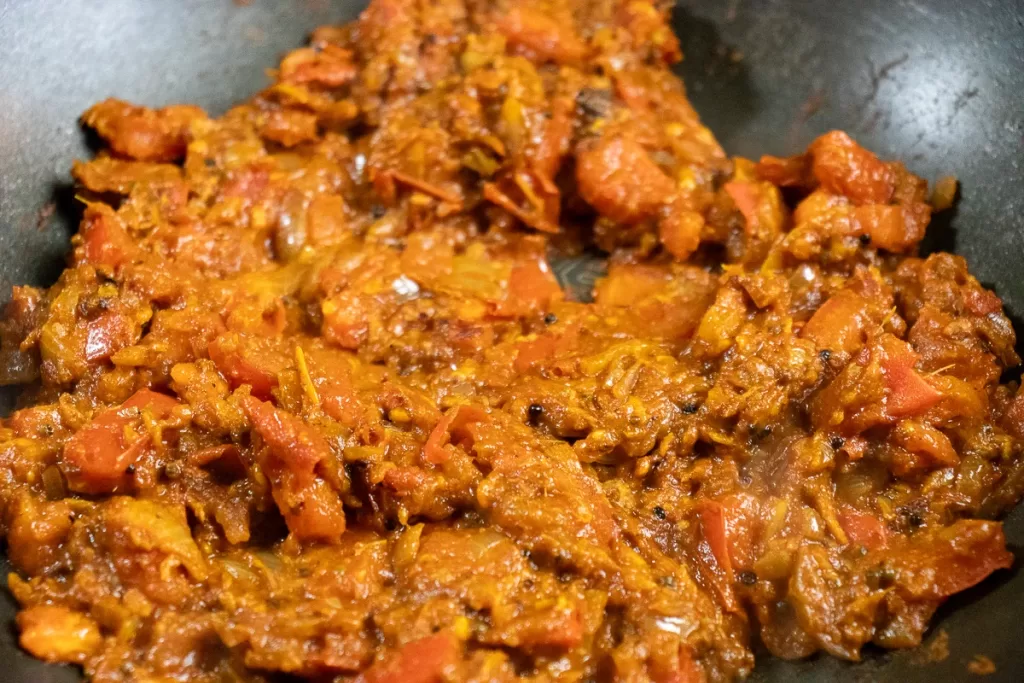
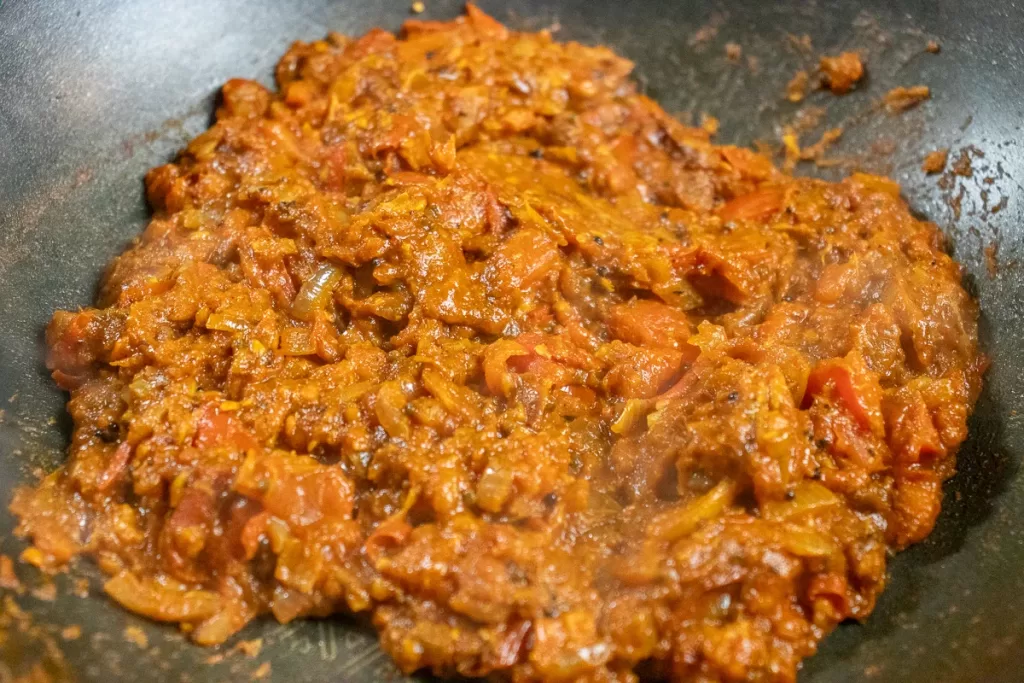
This, or slight variations, of this is the base for so many curries. You can veer off at this point and make whatever curry you want. But we will continue to make our creamy butternut squash curry.
9) From here, it’s really very simple. Add the coconut milk and the cashews. Mix it well and let it simmer until you see the oil settling on top and the cashews are soft.
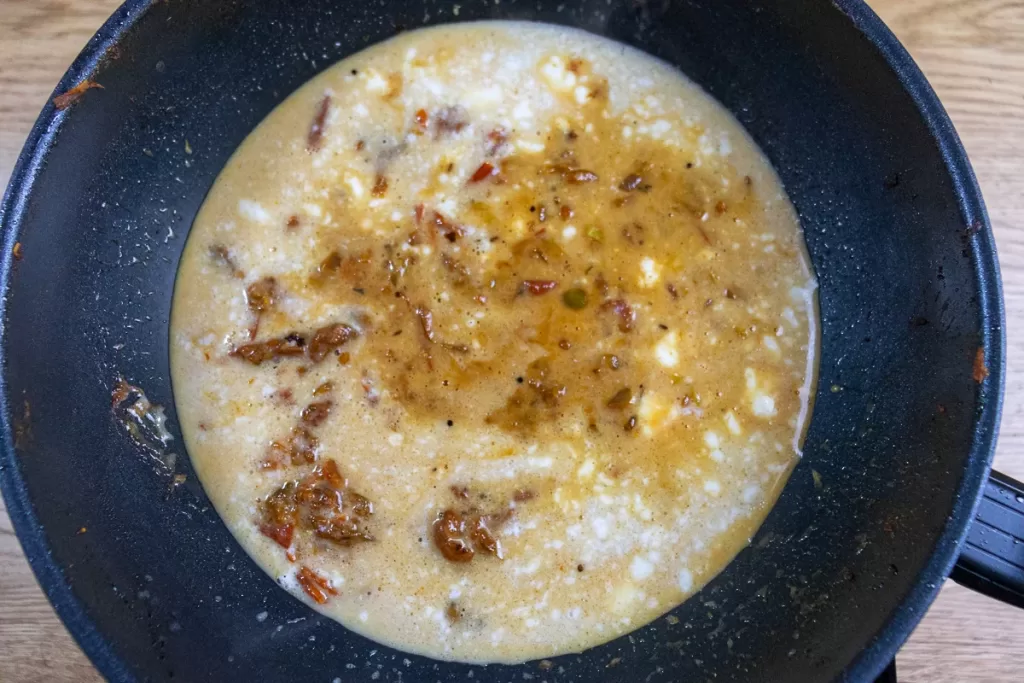
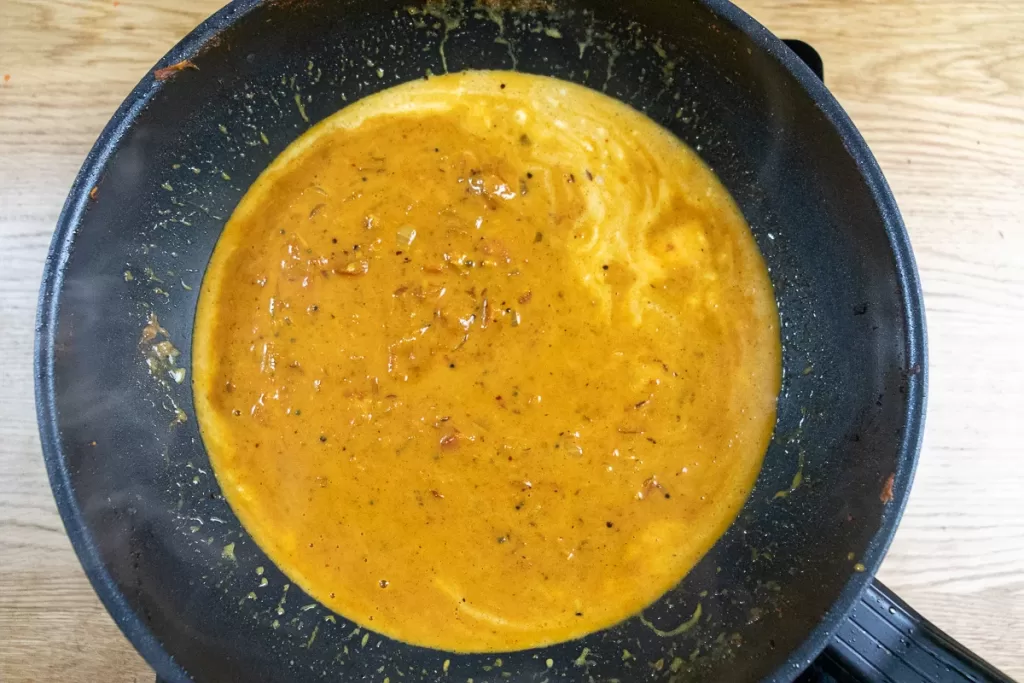
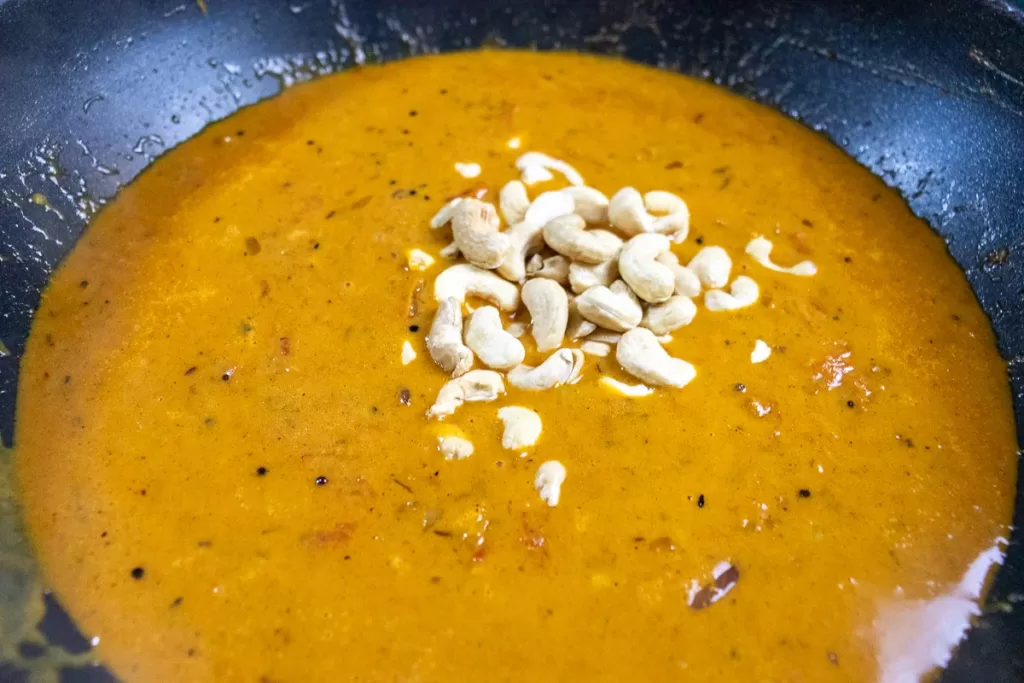
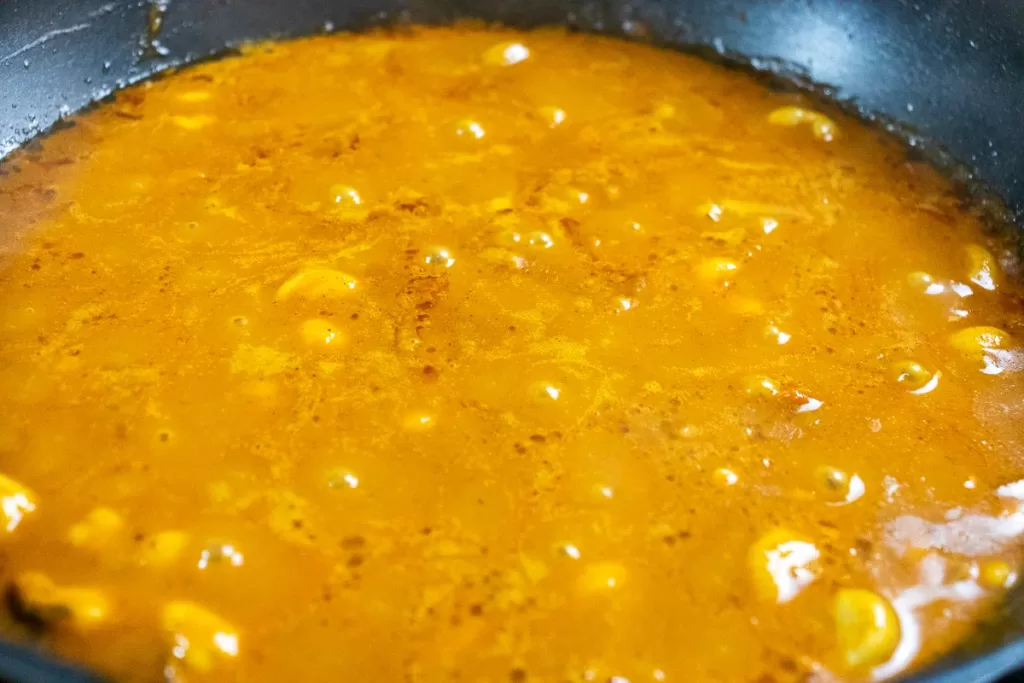
10) Combine the drained chickpeas, the roasted butternut squash, its cooking oil, and spices into the curry. As squashes can vary quite dramatically in size, if you have too much, simply save it for another dish. I like to use it as a topping for soups!
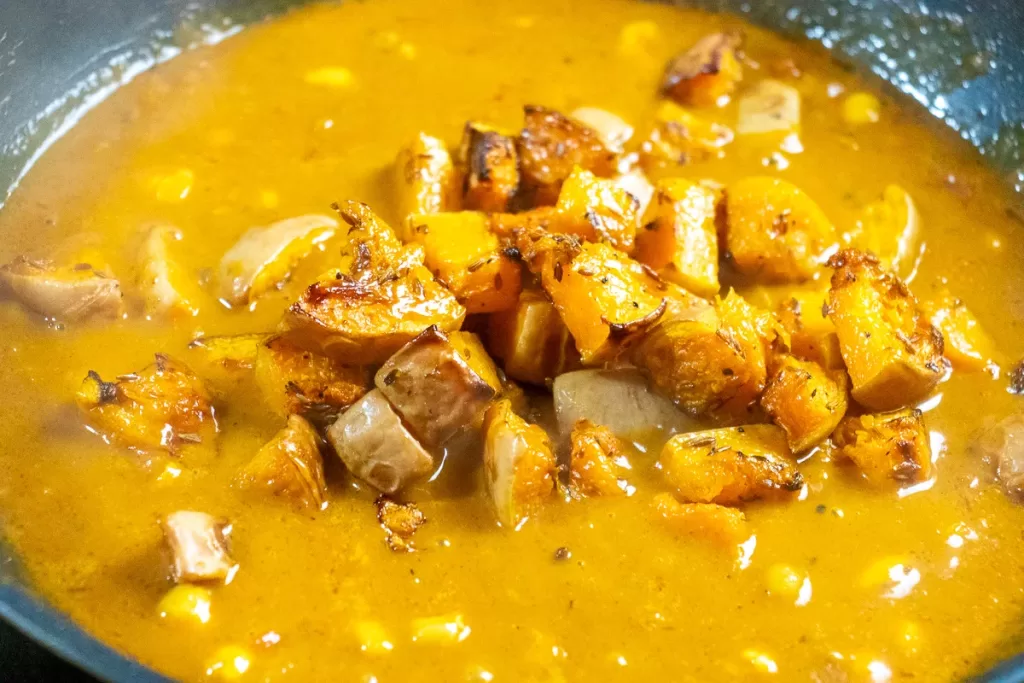
11) This is where you should add the garam masala and the fenugreek leaves.
12) Now, take it off the heat. Let it cool for a minute as you’ll be able to taste for seasoning better if it’s not scorching your tongue.
13) Add the juice of half a lime, this will lift the final dish and help to marry all the flavours together.
Adding acid is almost as important as salt in seasoning.
14) Adjust the salt and pepper to your tastes.
15) Plate it up with a nice garnish of coriander (or cilantro for my American friends) on a bed of basmati rice. Serve with some naan breads or onion bhaji and enjoy.
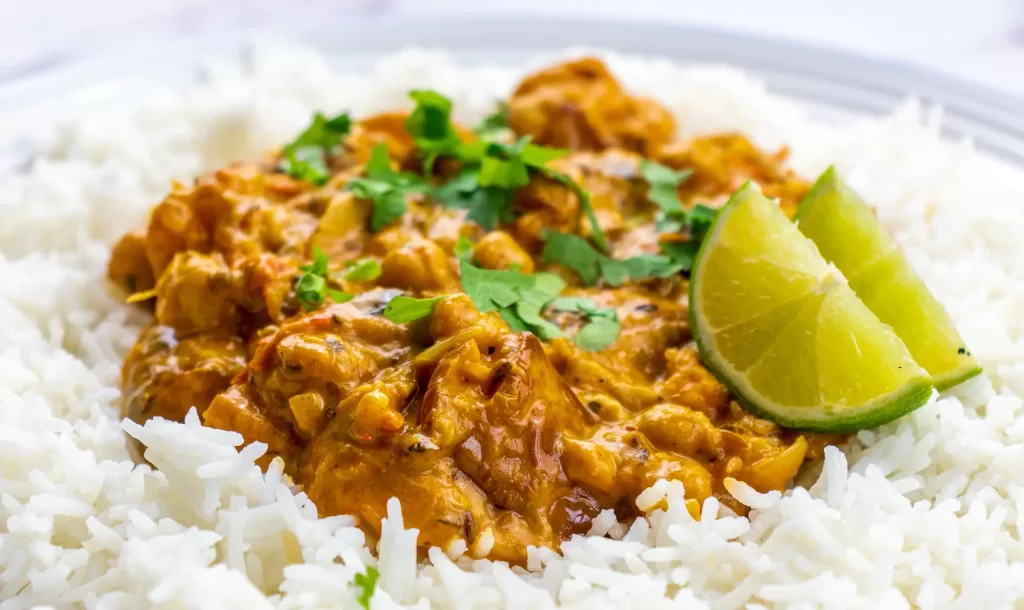
Tips for getting it right!
- Good curries take a while, so don’t rush it! Make sure you allow plenty of time for the spices to permeate through all the ingredients.
- Make sure it doesn’t get too dry! If you are cooking it for a while, a lot of the liquid can evaporate. Just top it up as needed.
Potential variations
- If you can’t have coconut milk, you can leave it out and use a vegan yoghurt instead. It won’t be quite as creamy and indulgent. But it will work fine as long as you use a quality yoghurt. I like the Oatly one here in the UK.
- You could actually use any sort of squash that you have available if you don’t have any butternut squash.
Frequently asked questions
Can I use tinned tomatoes instead of fresh ones?
Yep, I do it often if I don’t have any tomatoes on hand. Making it with fresh tomatoes will taste a little better. But, as long as you use quality tinned tomatoes, it will work fine.
Why does it take so long to make curry?
It just takes a while to build the flavours and for them to permeate through the dish. You can cook it faster by using tinned tomatoes and not letting it simmer as long. It will still be good, but just not quite a good.
How long will the butternut squash curry stay fresh?
It should stay fresh for about 3 to 4 days in the fridge.
If you try this recipe, let me know what you think!
Leave a comment, rate it, and don’t forget to tag a picture @theseveggiedelights on Instagram!
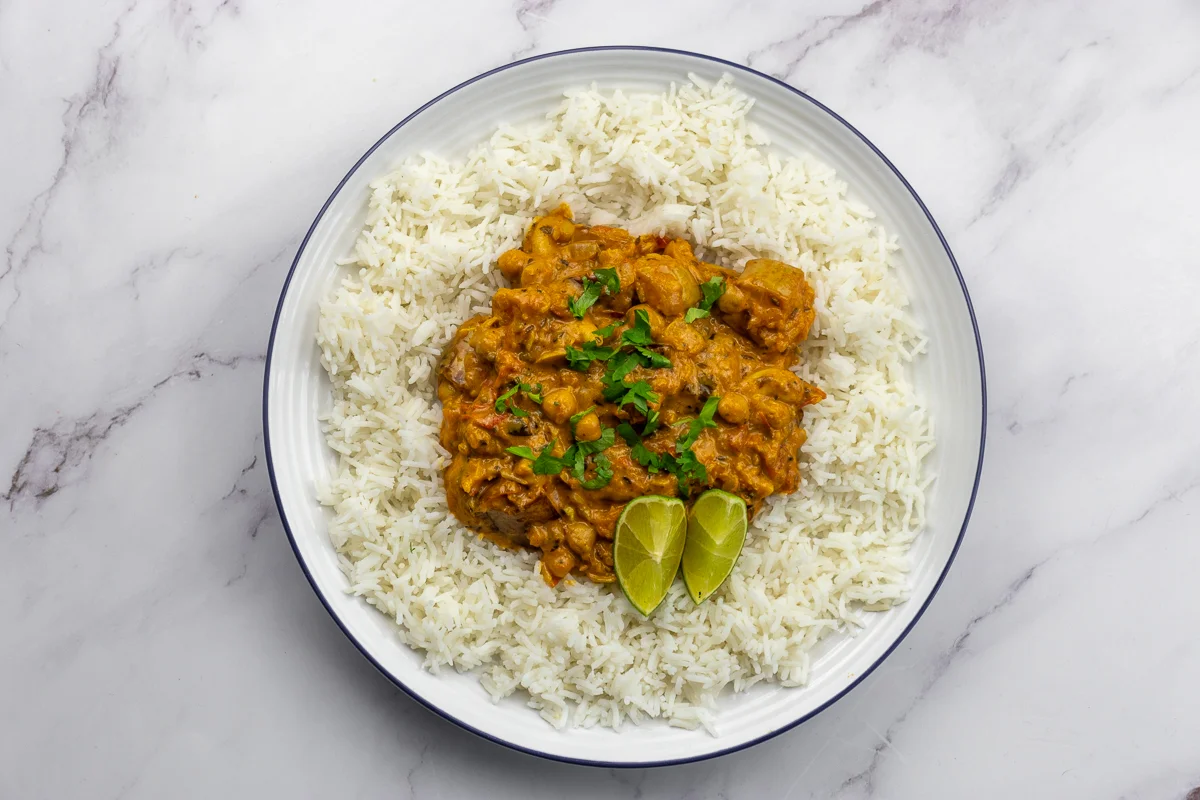
Butternut squash curry
Equipment
- 1 Non stick wok or large saucepan
Ingredients
- 1 Whole Butternut squash
- 100 g Cashews
- 400 g Tomatoes
- 400 g tin Chickpeas
- 400 g tin Coconut milk
- 4 Tbsp Sunflower oil Or any neutral oil
- 1 Large Onion
- 4/5 Cloves Garlic
- 1 Thumb size Ginger
- 2 Tbsp Curry powder I like east end but any will do
- 1 Tbsp Garam masala
- 1 Tbsp Fenugreek leaves
- 1 Tsp Cumin seeds
- 1 Tsp Mustard seeds
- 1 Tbsp Tomato puree
Instructions
Prepare the butternut squash
- Cut the squash up into cubes, coat in 2 tbsp oil, salt, pepper and cumin seeds
- Roast for around 20 to 30 minutes until tender but not too soft
Prepare the veg
- Dice the onion
- Chop the tomatoes, doesn’t have to be perfect.
- If you have a pestle & mortar, then add garlic and ginger and pummel until you have a paste. Otherwise, grate on the small side of a box grater.
Start the curry
- In a large pan or non stick wok, heat 2 tbsp of neutral oil.
- Add the mustard seeds and cumin seeds until the mustard seeds start to pop.
- Add the garlic and ginger paste and fry for a minute until aromatic.
- Before it burns, add the diced onion and a pinch of salt. The liquid released here will ensure that the aromatics don’t burn.
- Now we want to bloom the spices. Add the curry powder to the pan and, if it seems dry, add more oil.
- Add the tomato puree, mix in and cook for a minute.
- Add the chopped tomatoes and let them reduce until you have your thickened masala.
- Add the coconut milk and the cashews.
- Cook at least until you see the coconut milk form a layer on top of the curry and the cashews are softened. The longer you let it simmer, the better it will taste.
- Add in your drained chickpeas, and the roasted butternut squash with all the oil and spices on the tray.
- This is the point where we want to add the garam masala and fenugreek leaves and incorporate fully.
- Finally, remove from the heat and add the juice of half a lime.
- Adjust for seasoning to your taste.
- Serve with basmati rice, or naan bread. Or both…

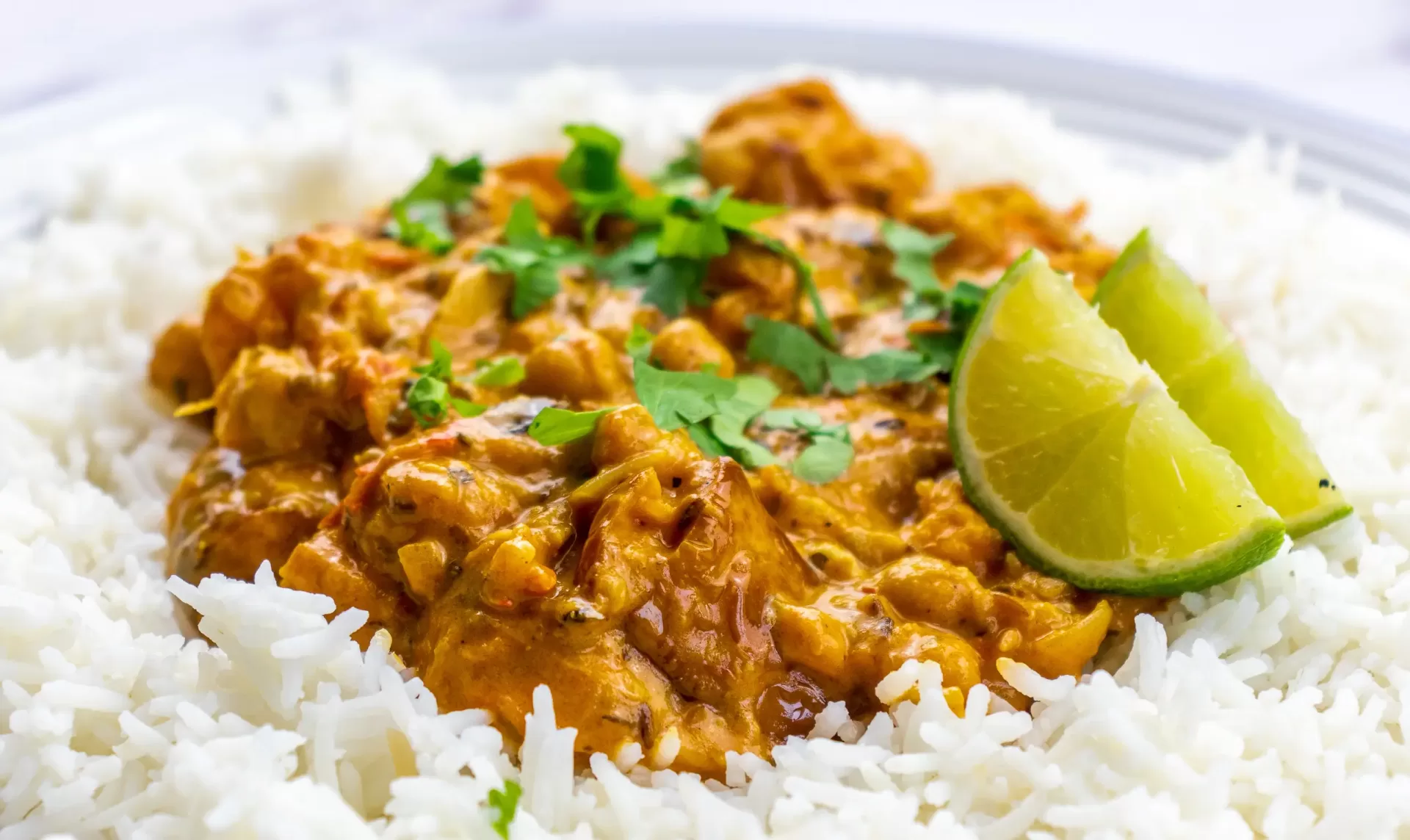
Leave a Reply